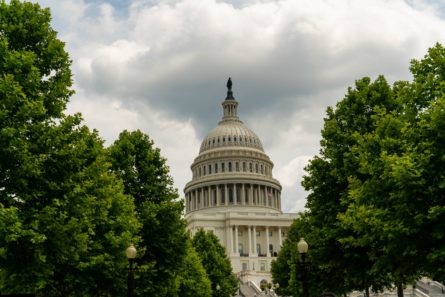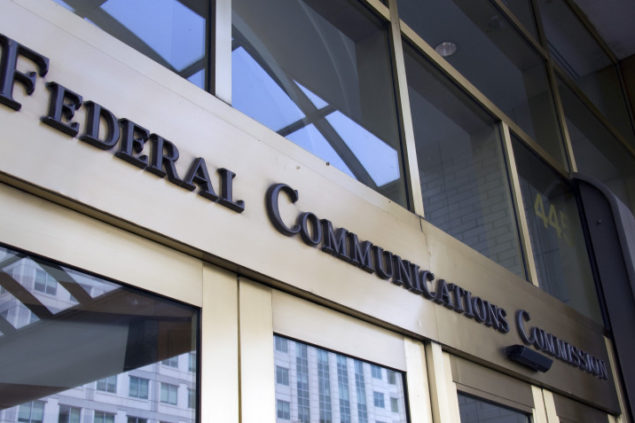The House Staff Antitrust Report Will Negatively Affect More Than the Tech Industry
Lawrence Spiwak

This post is part of the “Governing the Internet” blog series, which features a range of viewpoints on topics involving internet regulation.
The series is co-sponsored by the Regulatory Transparency Project and the Federalist Society’s Practice Groups.
After an extensive investigation, the Democratic Majority staff of the House Subcommittee on Antitrust recently issued a 450-page report on “competition in digital markets.” The bulk of this report details allegedly anticompetitive conduct by Apple, Google, Facebook, and Amazon. The report laments that these firms “wield tremendous power” and abuse it “by charging exorbitant fees.” Yet, recognizing that pursuing a case under the existing antitrust laws can be difficult with no guarantee of success, the report offers several legislative recommendations for how Congress should significantly reform these laws so as to make it easier for the Department of Justice (DOJ) and Federal Trade Commission (FTC) to rein in these four companies.
Many are hailing the report’s recommended legislative changes as a blow against “Big Tech.” Perhaps. But its recommendations will have consequences far beyond the tech industry.
Our antitrust laws do not apply just to four companies; the Sherman Act, the Clayton Act and the Federal Trade Commission Act apply across the entire economy. Accordingly, given the multitude of economic flaws and due process problems contained in the report, every business—not just Big Tech—should be worried if Congress attempts to enact these recommended legislative changes.
At the heart of the staff’s analysis is the age-old but discredited belief that a high market share equates to market power. But using market share as the key metric only makes sense if one first defines the market, and this fundamental task is inconvenient for staff. Indeed, the report claims that “market definition is not required for proving an antitrust violation, especially in the presence of direct evidence of market power.” In so doing, staff seeks to untether the analytical process necessary to determine market power from the economics and replace it with a more political “know it when I see it” approach.
This ill-defined analytical approach to market shares—and by extension, market power—pollutes the staff report’s entire analysis.
For example, the report is hostile to “two-sided” markets, or “platforms.” Platforms connect two or more sets of agents, such as advertisers and consumers; the decisions of each set of agents affects the outcomes for the other set of agents. Frequently, the value of the platform to customers on one side of the platform depends on the number of customers on the other. The platform can charge different prices to different sides of the platform; often one side may have a price of zero. Generally, economics holds that if the price goes up on one side of the market, then price goes down on the other, and vice versa.
Platforms abound in our economy and are not limited to the four companies named in the report. For example, broadband service providers such as AT&T and Comcast are “platforms.” Credit card companies are also “platforms.” Furthermore, while a platform is a single firm by definition, that platform may be just one of many competitors in a broader market. As such, antitrust must apply a proper economic analysis to these specially structured markets, because two-sided markets do add a wrinkle to traditional competition analysis. Courts and academics have been grappling with how to properly apply antitrust to platforms, and this work continues.
In a recent case, however, antitrust enforcers attempted to ignore the unique characteristics of platforms, arguing that only one side of the platform mattered to antitrust analysis. This litigation strategy did not go well. In Ohio v. American Express, the U.S. Supreme Court held that the two sides of a platform are inexorably linked, and therefore both sides of the platform must be analyzed to prove that a platform violated the antitrust laws. This conclusion was anathema to Lina Khan, a key member of the majority staff, who wrote that Amex now grants a shield “from effective antitrust scrutiny [to] a huge swath of firms that provide services on more than one side of a transaction.” Unsurprisingly, the report advocates the legislative repeal of Amex, again threatening a wide swath of companies.
The report’s merger-review recommendations also over-rely on market shares. The report recommends presumptively prohibiting any merger involving a firm with a market share of 30 percent or more—regardless of any demonstration of merger-related efficiencies. Similarly, the report recommends presuming anticompetitive any vertical merger involving a dominant firm operating in a concentrated market (whatever a “market” means in the context of undefined markets). The report also recommends that Congress open merger reviews to public comment, like the merger review process used at the Federal Communications Commission.
The problem with this recommended approach is that presumptively prohibiting mergers would create a “mother-may-I” oversight regime that deeply contradicts the report’s argument that antitrust laws should ensure “economic freedom.” As former FTC Commissioner Josh Wright observed, “Shifting the burden to [the defendant] offends our sense of basic due process and fairness. The notion that all mergers are unlawful with no showing from the [government …] places the [FTC and DOJ] in the position as super-regulator.”
Moreover, allowing for public comments would inject politics into what is currently a dispassionate and (largely) apolitical process. Experience has taught us that when government becomes a “super regulator” as the report desires, then this politicized process will increasingly ignore legal precedent. Merger review becomes nothing more than a negotiation between the government and industry, with the merging parties doling out all manner of political concessions totally unrelated to fixing any merger-specific harm just to get approval. The D.C. Circuit recently called out this phenomenon in the case of Competitive Enterprise Institute v. FCC, chastising the Federal Communications Commission for engaging in “an out-and-out plan of extortion” for encouraging the proliferation of (in the court’s words) “non-germane” merger conditions. If we want better antitrust enforcement, therefore, we need more dispassionate economic analysis and less politics.
As the D.C. Circuit noted forty years ago in United States v. FCC, the goal of antitrust law is to “achieve the most efficient allocation of resources possible.” As such, antitrust is supposed to protect competition, not individual competitors. The report, however, wants to turn this long-standing goal on its head. It argues antitrust should protect “workers, entrepreneurs, independent businesses, open markets, a fair economy, and democratic ideals.”
But if antitrust is supposed to be the junction where the law meets economics, how does one model such ephemeral ideals such as a “fair economy” or “democratic ideals”? Whose sense of “fairness” and “ideals” are to be imposed? The report is silent; but it is safe to say to say that people of different political persuasions (and perhaps even among people who claim to have similar political persuasions) disagree quite a lot about what is “fair” and what “ideals” to pursue.
If we are concerned that antitrust enforcement is lacking, then the report’s recommendation that Congress increase budgets of the DOJ and the FTC, coupled with increased Congressional oversight, could help. But the staff report’s legislative recommendations, which lay the groundwork for injecting partisanship into what should remain a neutral arena of legal enforcement, will not.

Author
Topic
Sponsor
Federalist Society’s Practice Groups
Series

The Federalist Society and Regulatory Transparency Project take no position on particular legal or public policy matters. All expressions of opinion are those of the author(s). To join the debate, please email us at [email protected].




